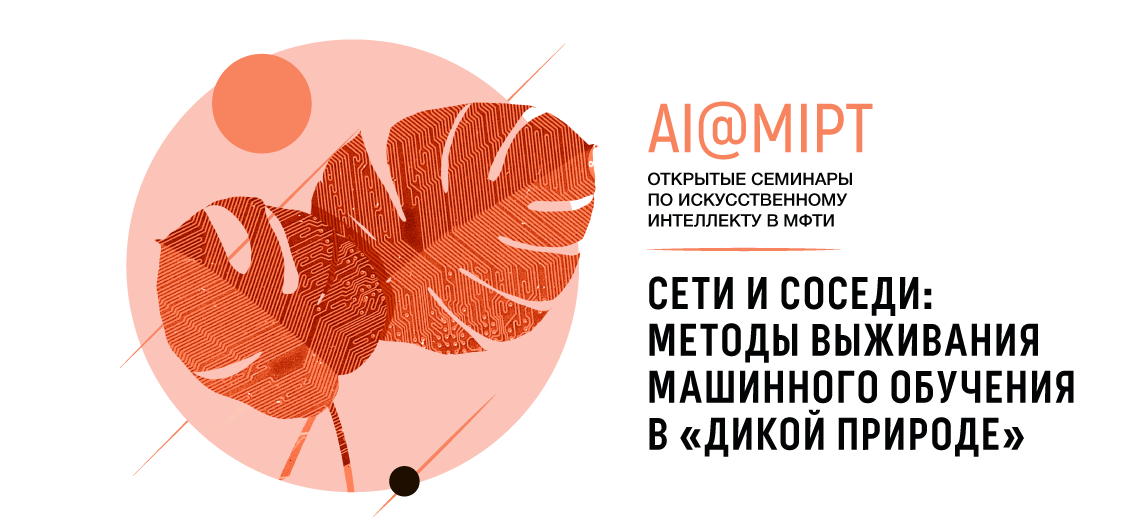Networks and neighbors: methods of survival of machine learning in the “wild”. Open Workshop AI @ MIPT

Hi, Habr! On January 22 at 18:30, the regular meeting from the series of seminars on artificial intelligence will take place at the Physical and Technical Institute. We invite you to upgrade and familiarize yourself with the atmosphere of the Physics and Technology Institute :) Mikhail Bilenko , head of the Machine Intelligence and Research division at Yandex and coordinator of the Yandex research group at MIPT, will tell you about the unique differences between academic and technological machine learning. The seminar will be held in 107 audience of the MIPT Biokorpus, you can register here (do not forget to take your passport).
Parametric methods of machine learning, such as neural networks, growing trees (boosted trees), factorization methods and their combination, set the last word in machine learning benchmarks from academic standards (such as ImageNet) to Kaggle competitions. However, the use of machine learning systems in the real world differs significantly in a number of parameters.
Differences between academic and technological training lead to very different optimal solutions, compared with those that are usually found in competitions and academic benchmarks. The discussion focuses on the need to combine parametric and non-parametric models (such as modern versions of the nearest neighbor algorithms). Some interesting combinations that lead to modern technological solutions in machine translation systems and conversational systems will also be described.
')
Mikhail Bilenko leads the division of Machine Intelligence and Research in Yandex. Teams at MIR are engaged in research, development and product launches in key areas of artificial intelligence: conversational systems, speech recognition and synthesis, machine translation, computer vision and machine learning. Before Yandex, Mikhail led the Machine Learning Algorithms team at Microsoft, whose ML components were integrated into dozens of the company's products. Prior to this, he spent seven years working as a researcher at Microsoft Research, where he came after graduate school at the University of Texas at Austin and internships at Google and IBM Research.
Course materials are available in the Telegram channel and the group AI @ MIPT Vkontakte .
By the way, what else would you be interested to learn about artificial intelligence in AI @ MIPT format?
Source: https://habr.com/ru/post/346668/
All Articles